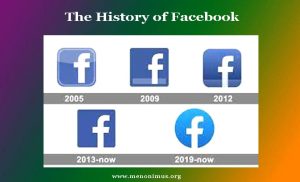The History of Facebook
The History of Facebook
The History of Facebook
Facebook is a social networking platform that was founded by Mark Zuckerberg in 2004. The website’s initial focus was on creating a platform for college students to connect with one another. However, as the platform grew, it expanded to include other demographics and became one of the most popular social networking sites in the world. In this article, I will detail the history of Facebook, from its early beginnings to its current status as one of the most widely-used social media platforms on the planet.
Facebook was launched on February 4, 2004, as “TheFacebook.com” by Mark Zuckerberg, a Harvard College student, and his roommates. The website was initially only available to students at Harvard College, but it soon expanded to other universities, including Stanford, Yale, and Columbia. The site’s user base grew rapidly, and by the end of 2004, over a million users had registered on the platform.
In 2005, Facebook received its first investment from PayPal co-founder Peter Thiel. The site also expanded to include high school students, and by the end of the year, Facebook had over 5.5 million registered users.
In 2006, Facebook became available to anyone with an email address, and the platform started to gain a significant amount of attention. That same year, Facebook introduced the News Feed, which allowed users to see updates from their friends in real-time. This feature was met with controversy, as users were concerned about their privacy on the platform.
In 2007, Facebook launched the Facebook Platform, which allowed third-party developers to create applications that could be used on the platform. This move helped to increase the site’s popularity, and by the end of the year, Facebook had over 50 million registered users.
In 2008, Facebook redesigned its website and introduced the ability to tag friends in photos. The platform also launched Facebook Chat, which allowed users to communicate with each other in real-time.
In 2009, Facebook surpassed MySpace as the most popular social networking site in the United States. The platform also launched its Like button, which allowed users to show their approval of posts and comments.
In 2010, the movie “The Social Network” was released, which told the story of Facebook’s early beginnings. The platform also launched Places, which allowed users to share their location with their friends.
In 2012, Facebook became a publicly-traded company, with an initial public offering that valued the company at $104 billion. The platform also acquired Instagram, a popular photo-sharing app, for $1 billion.
In 2014, Facebook acquired WhatsApp, a popular messaging app, for $19 billion. The platform also launched its own messaging app, Facebook Messenger, which quickly became popular.
In 2016, Facebook introduced Facebook Live, which allowed users to broadcast live video on the platform. The platform also launched Facebook Marketplace, which allowed users to buy and sell goods and services directly on the platform.
In 2018, Facebook was hit with a major scandal when it was revealed that Cambridge Analytica, a political consulting firm, had gained access to the personal data of millions of Facebook users without their consent. The scandal led to increased scrutiny of Facebook’s privacy policies and practices.
In 2020, Facebook launched Facebook Shops, which allowed businesses to create online stores on the platform. The platform also faced increased scrutiny during the COVID-19 pandemic, as misinformation about the virus spread rapidly on the platform.
Today, Facebook has over 2.9 billion monthly active users, and the platform continues to be one of the most popular social networking sites in the world. 0 0 0.
The History of Facebook
Sources: The History of Facebook
“The History of Facebook” by Mary Bellis, ThoughtCo, August 6, 2021.
“A Brief History of Facebook” by Keith Collins. ***
The History of Facebook
You May Like:
N.B. The article ‘The History of Facebook’ originally belongs to the book ‘Essays on Science And Technology‘ by Menonim Menonimus.
The History of Facebook
Books of Composition by M. Menonimus:
- Advertisement Writing
- Amplification Writing
- Note Making
- Paragraph Writing
- Notice Writing
- Passage Comprehension
- The Art of Poster Writing
- The Art of Letter Writing
- Report Writing
- Story Writing
- Substance Writing
- School Essays Part-I
- School Essays Part-II
- School English Grammar Part-I
- School English Grammar Part-II..
Related Search:











